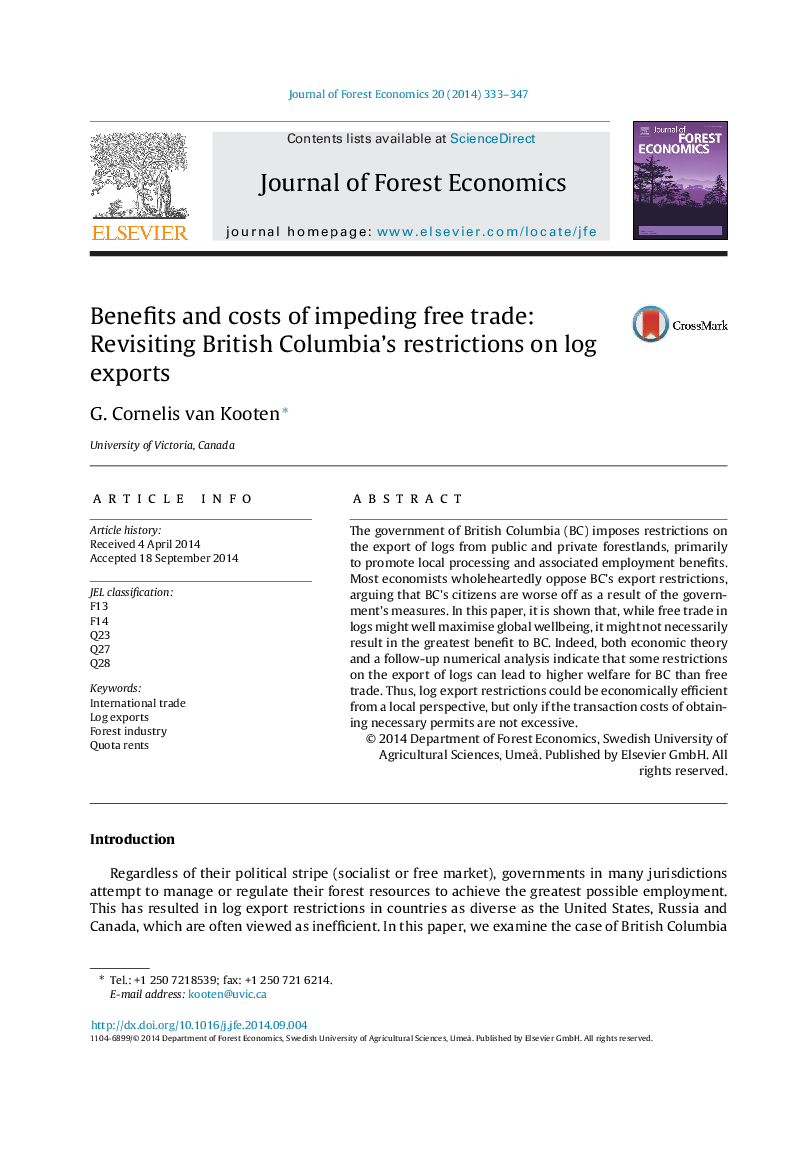| Article ID | Journal | Published Year | Pages | File Type |
|---|---|---|---|---|
| 91785 | Journal of Forest Economics | 2014 | 15 Pages |
The government of British Columbia (BC) imposes restrictions on the export of logs from public and private forestlands, primarily to promote local processing and associated employment benefits. Most economists wholeheartedly oppose BC's export restrictions, arguing that BC's citizens are worse off as a result of the government's measures. In this paper, it is shown that, while free trade in logs might well maximise global wellbeing, it might not necessarily result in the greatest benefit to BC. Indeed, both economic theory and a follow-up numerical analysis indicate that some restrictions on the export of logs can lead to higher welfare for BC than free trade. Thus, log export restrictions could be economically efficient from a local perspective, but only if the transaction costs of obtaining necessary permits are not excessive.
